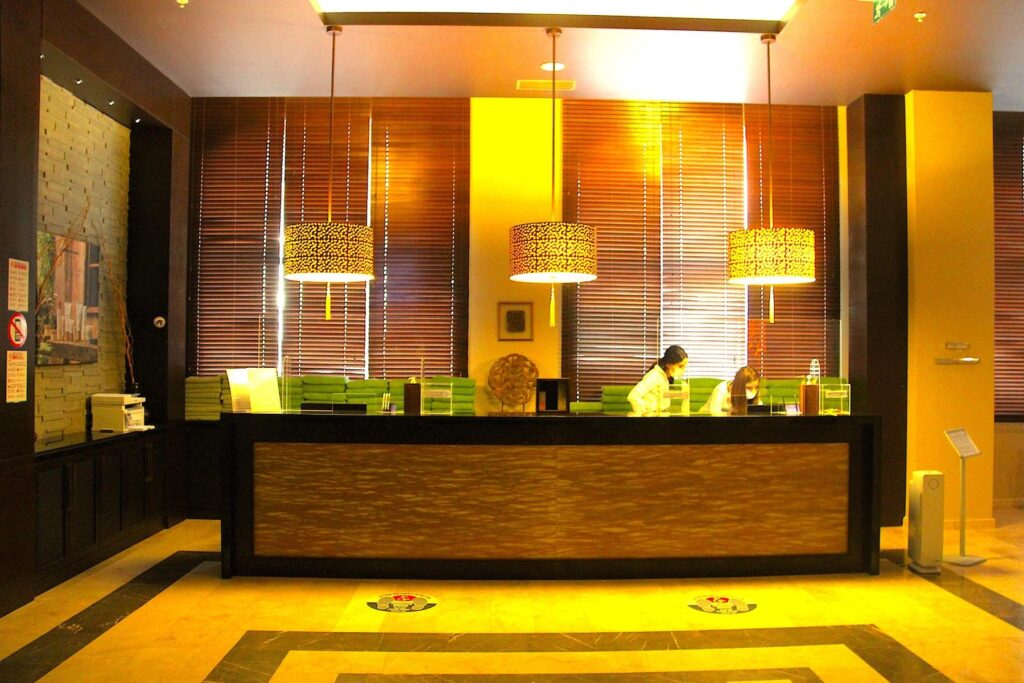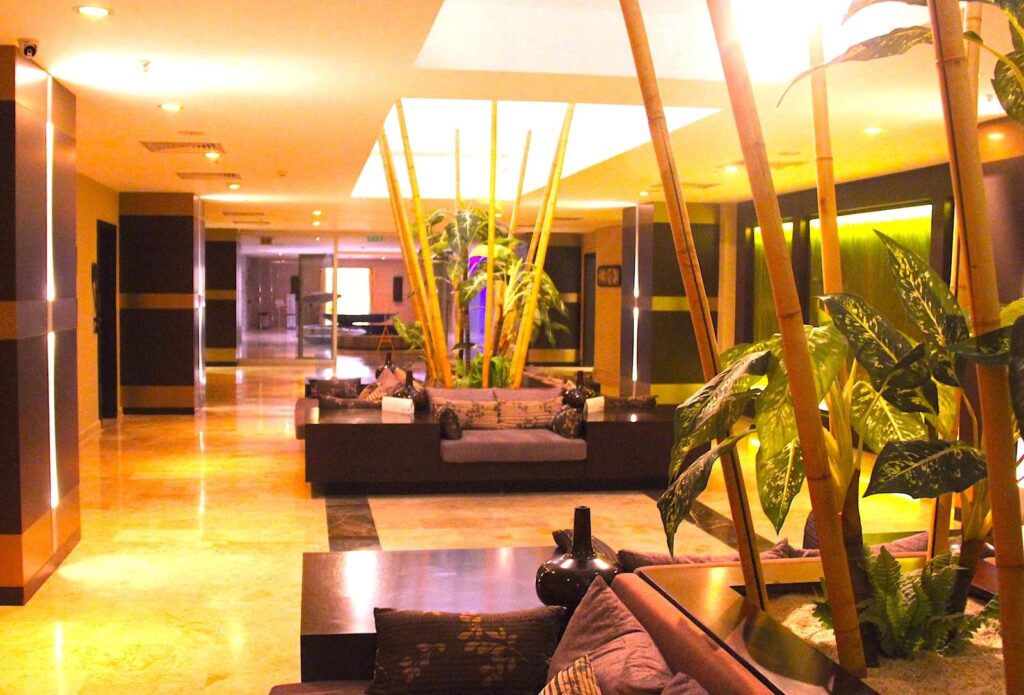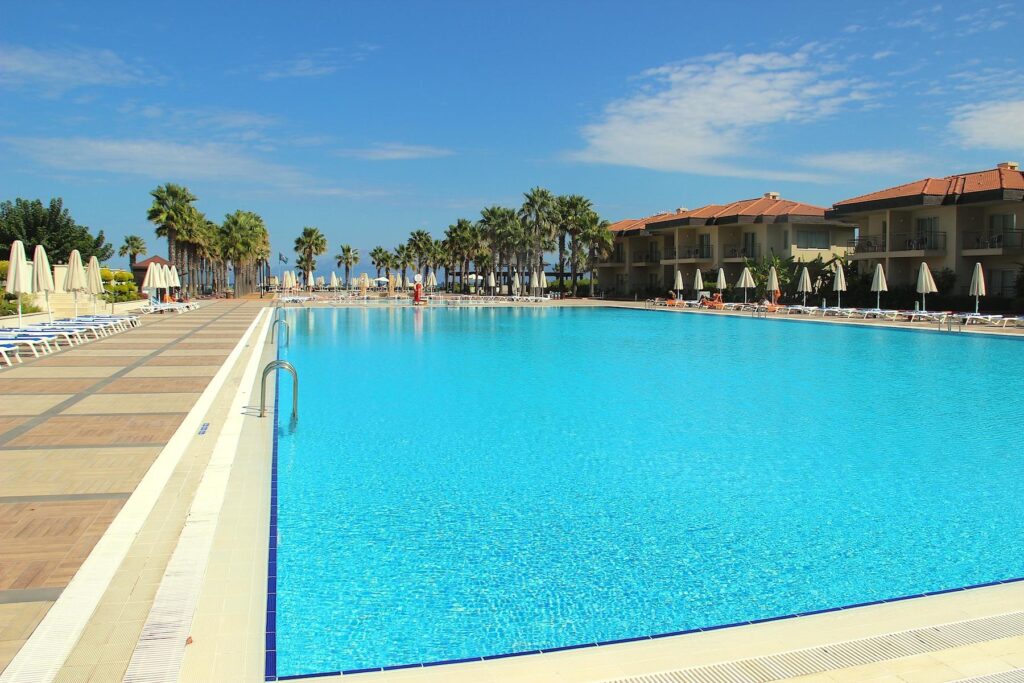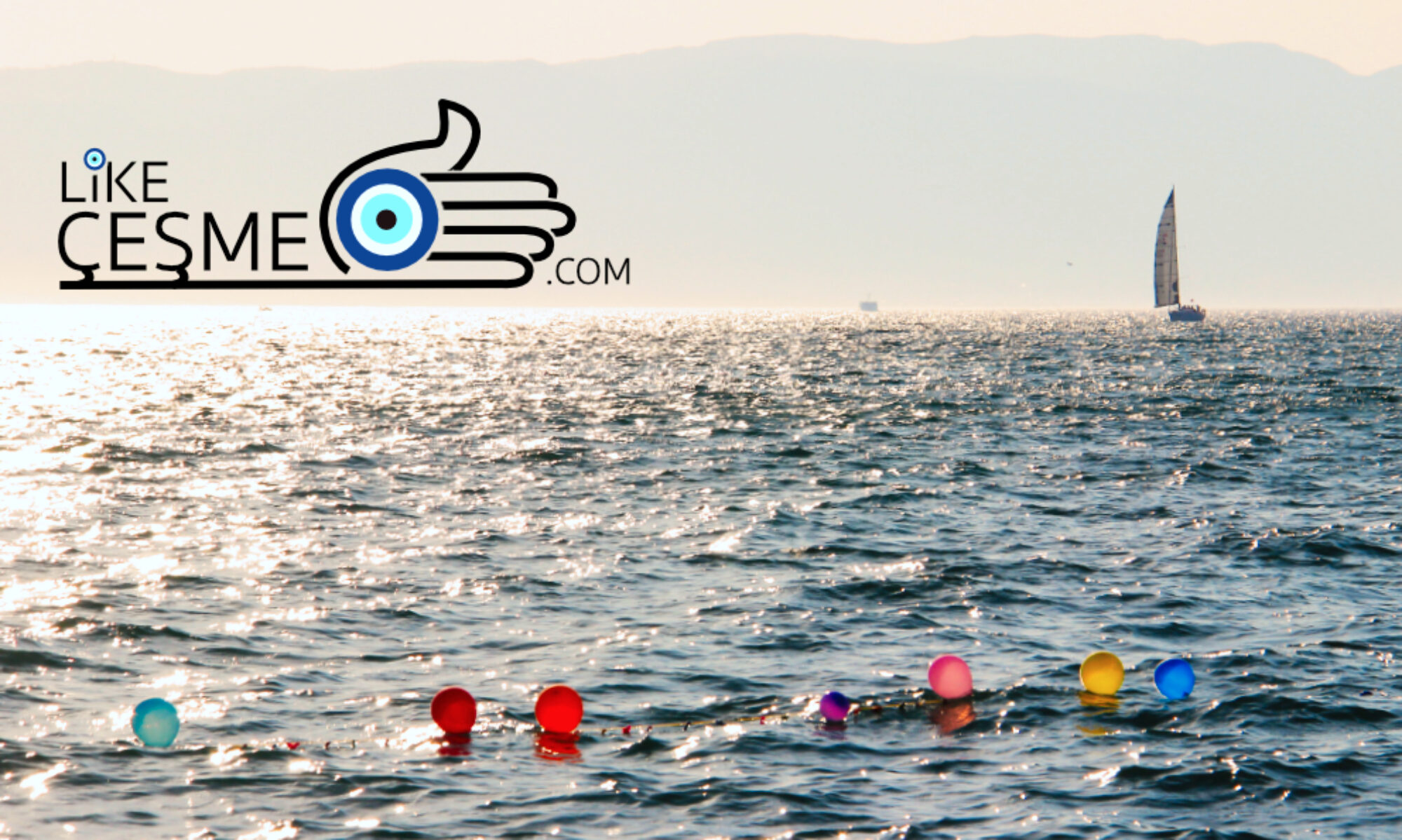Spa, the acronym SPA from the Latin “Sonus Per Aqua,” “Salut Per Aqua,” or “Sanitas Per Aquas,” a combination of “Sanitas” – “Health” and “Aqua” – “Water” and translated as health from water, or health that comes through the water.
Hammam, meaning “bath” or “bathhouse”, derives from the Arabic H-M-M related to heat, also for al-ḥamma, meaning hot spring, passed through Persian to Turkish as Hamam. Public bathhouses were a prominent civic and urban institution in Roman and Hellenistic culture. They were found throughout the Mediterranean, remaining important in the cities of the early Byzantine Empire up to the mid-6th century. With the expansion of Arab Muslim rule through the 6th, 7th and 8th centuries, the emerging Islamic societies adapted the bathhouse to their own needs, specifically in the religious requirement to perform ablutions before praying and because of the Islamic emphasis on physical and spiritual purity.
Traditional Steps in Turkish Bath Ritual
Changing: Covering your body with a towel, undergarments, or swimsuit is mandatory. Men should wrap the peştamal (Turkish bath towel) around their waist and cover the lower half of the body, while women should wrap the Peshtemal around their chest and keep the lower body also covered. If you did not bring your own, waterproof slippers are provided, and the locker key should be tied to your wrist.
Washing & warming: The hot room sıcaklık (hot room) consists of marble walls and floors, the kurna (marble sinks) installed in the walls, and the central göbek taşi (literally “belly stone”) marble heated platform. You should use the hamam tası (metal bowl) to wash your body and then lay down on the göbek taşi for about 20 minutes to warm, sweat, and allow your skin to soften.
Scrub: The tellak (men’s masseur) or natır (ladies’ masseur) will start to gently rub you with a kese (special cotton or silk cloth/glove) to exfoliate the body’s dead skin cells, increase blood circulation, and revitalize the skin. During the scrubbing, your tellak/natır focuses on the hard points on your body; feel free to tell them if you feel overstretched or sore or if there are parts you don’t want them to scrub. When scrubbing is finished, be ready for a bowl of cold water to wash off.
Foam massage: After the scrubbing procedure is completed, the köpük masajı (Turkish foam massage) will begin. The masseur pours soapy water on your body and then starts by rubbing soapy water on your body and then moving their hands rapidly to make foam, gently cleansing and refreshing your body. After the foam massage, you may get a quick head wash and massage.
Drying & relaxing: A hammam ritual usually takes one hour, but if you want to stay longer, just lay on the göbek taşı and relax, when you are done, the hammam attendant will provide you a towel for drying before you go out. The relaxation ritual continues in the hammam lounge where you can chill, drink tea, şerbet, or Gazoz soda pop, talk with others or read.
Çeşme Historical Parga Turkish Baths – Pargalı İbrahim Paşa Hamamı
Address: Musalla, 1015. Sk. No:15, 35930 Çeşme/İzmir. Hammam Website (no booking option). Tel.: 0549 127 3500. Opening hours are 12:00-20:00 (closed Mondays).
In 1528, the Caravanserai (100 metres northwest of the hammam) was built next to Çeşme Castle by Suleiman the Magnificent. Later, the hammam was built by Pargalı İbrahim Pasha by the order of Suleiman the Magnificent so that the soldiers and the people of the region could benefit. The hammam, which has been used for several centuries, had severely deteriorated and was extensively restored by Çeşme Municipality in 2016 and finally opened for public use in September 2023.
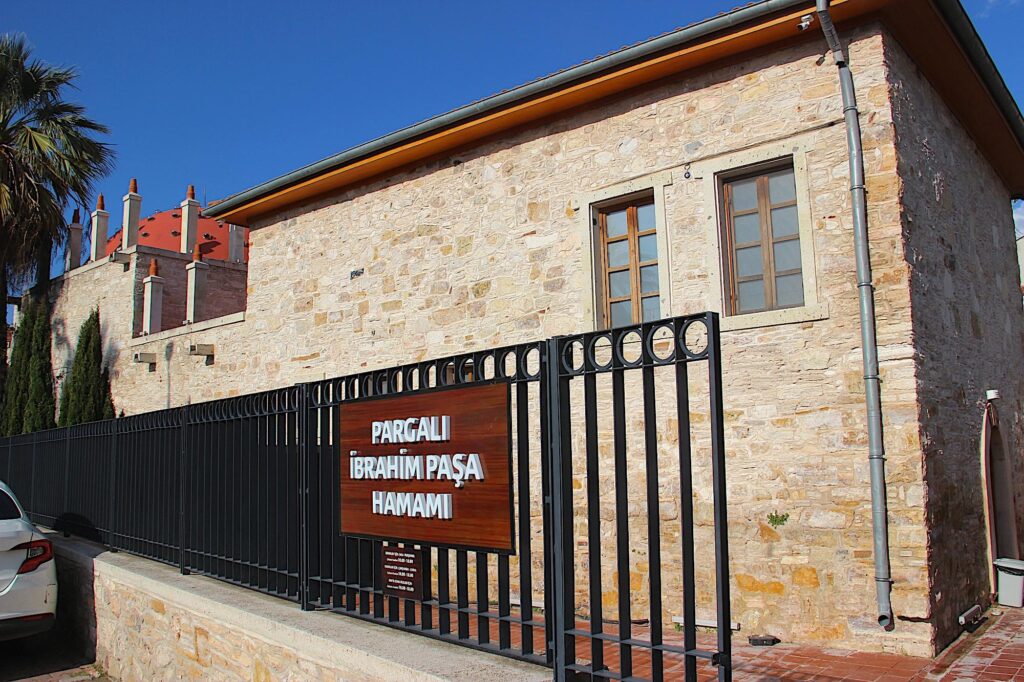
The hammam is under the operation of ÇEŞTUR A.Ş a Çeşme Municipality company. The 12:00-20:00 (except Mondays) schedule for access to the Pargalı Ibrahim Pasha Hamamı is listed on a sign outside as:
- For men: Tuesday & Thursday
- For women: Wednesday & Friday
- For families: Saturday & Sunday
- Monday: Closed
An announcement before opening (in September 2023) stated that two-hour scrub per person treatments were set at TL250 (approx. €9), and the complete hammam could be rented for four hours at TL15,000 (approx. €500). The price includes the bath entrance, cabinet, relaxation areas, sunbed use, loincloth, head towel, and slippers. As yet, no online booking appears to be available, and it was advised that booking should be made by telephone.
Dulcis Thermal Spa & Hammam
Address: Radisson Blu Resort & Spa Çeşme, Altınyunus, 3435. Sk. No:25, 35930 Çeşme/İzmir. Spa Website. Tel.: +90 232 455 4533. Email: spa.cesme@radissonblu.com – Opening hours are 08:00-20:30.
3,500 square meters spa, 21 individual treatment rooms, an indoor pool with jet streams, thermal pools, three hammams, Finnish and dry saunas, and a fitness centre.
